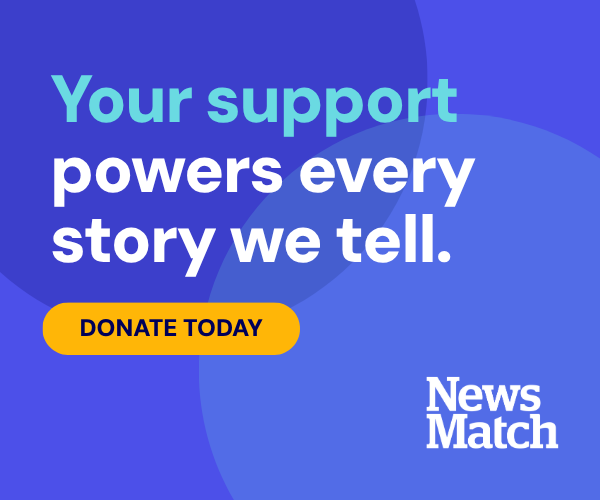Community
Lighting of menorah celebrates Jewish holiday of Chanukah
After a day of off-and-on rain, the sky cleared up to greet attendees of Gig Harbor’s second annual public menorah lighting on the fifth night of the Jewish wintertime festival called Chanukah.
Community Sponsor
Community stories are made possible in part by Peninsula Light Co, a proud sponsor of Gig Harbor Now.
While the sun still spilled from between clouds in the sky, families popped into local businesses that were taking part in the Chanukah Village. Most of them offered a variety of pop-up activities for kids, such as crafting and reading from a large book about Chanukah.
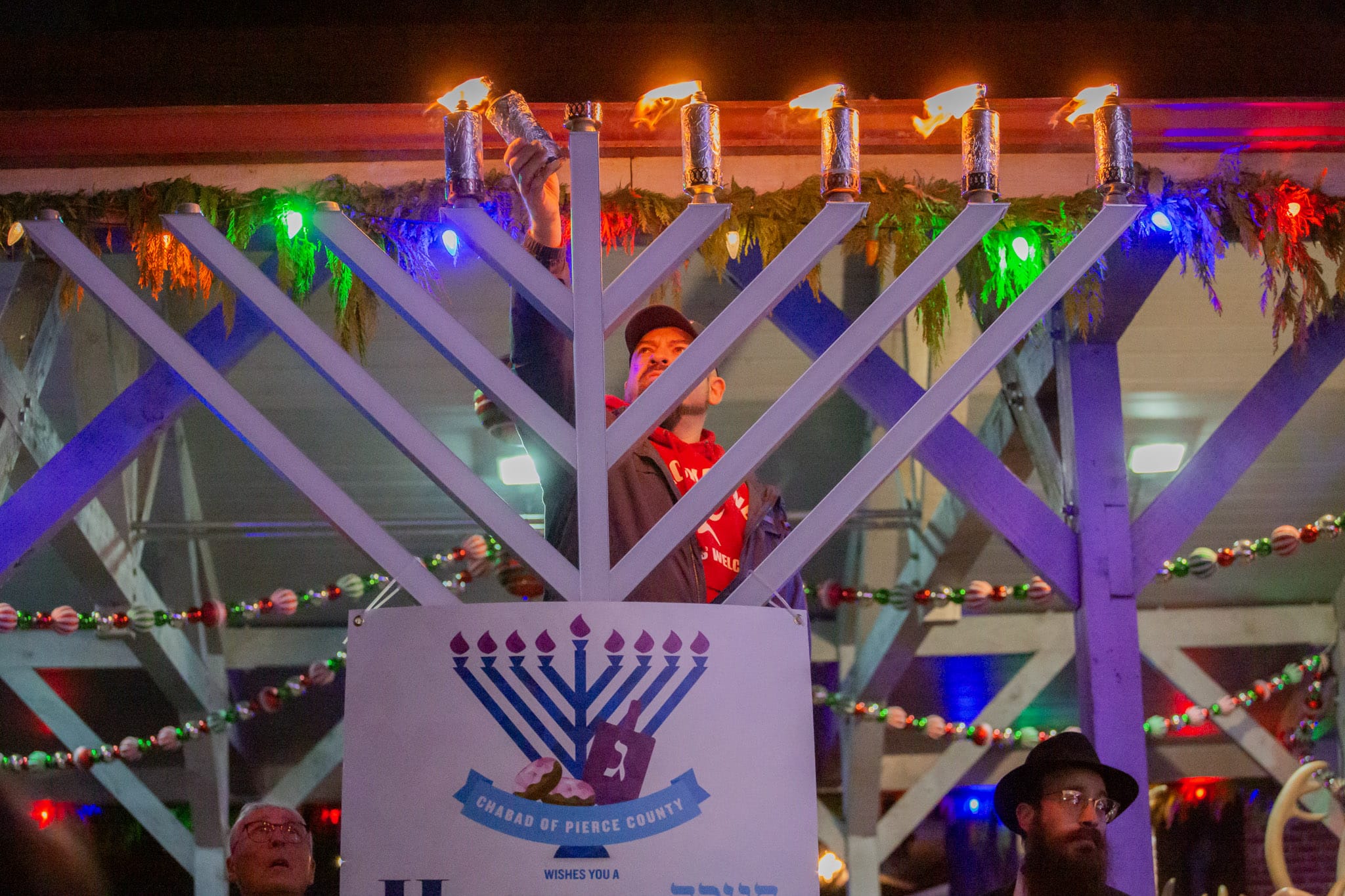
Lamplighters light the Chanukah menorah at Skansie Brothers Park in Gig Harbor on Dec. 29, 2024. Photo by Carolyn Bick. © Carolyn Bick
When night fell, several dozen attendees assembled on the lawn of Skansie Brothers Park to watch members of Chabad of Pierce County, led by Chabad’s Rabbi Mendel Kesselman, light a grand menorah in front of the gazebo.
Gig Harbor’s public menorah lighting this year coincided with the 50th anniversary of the first-ever public menorah lighting in the United States. The first-ever public menorah lighting in the United States happened in 1974 at the Liberty Bell in Philadelphia.
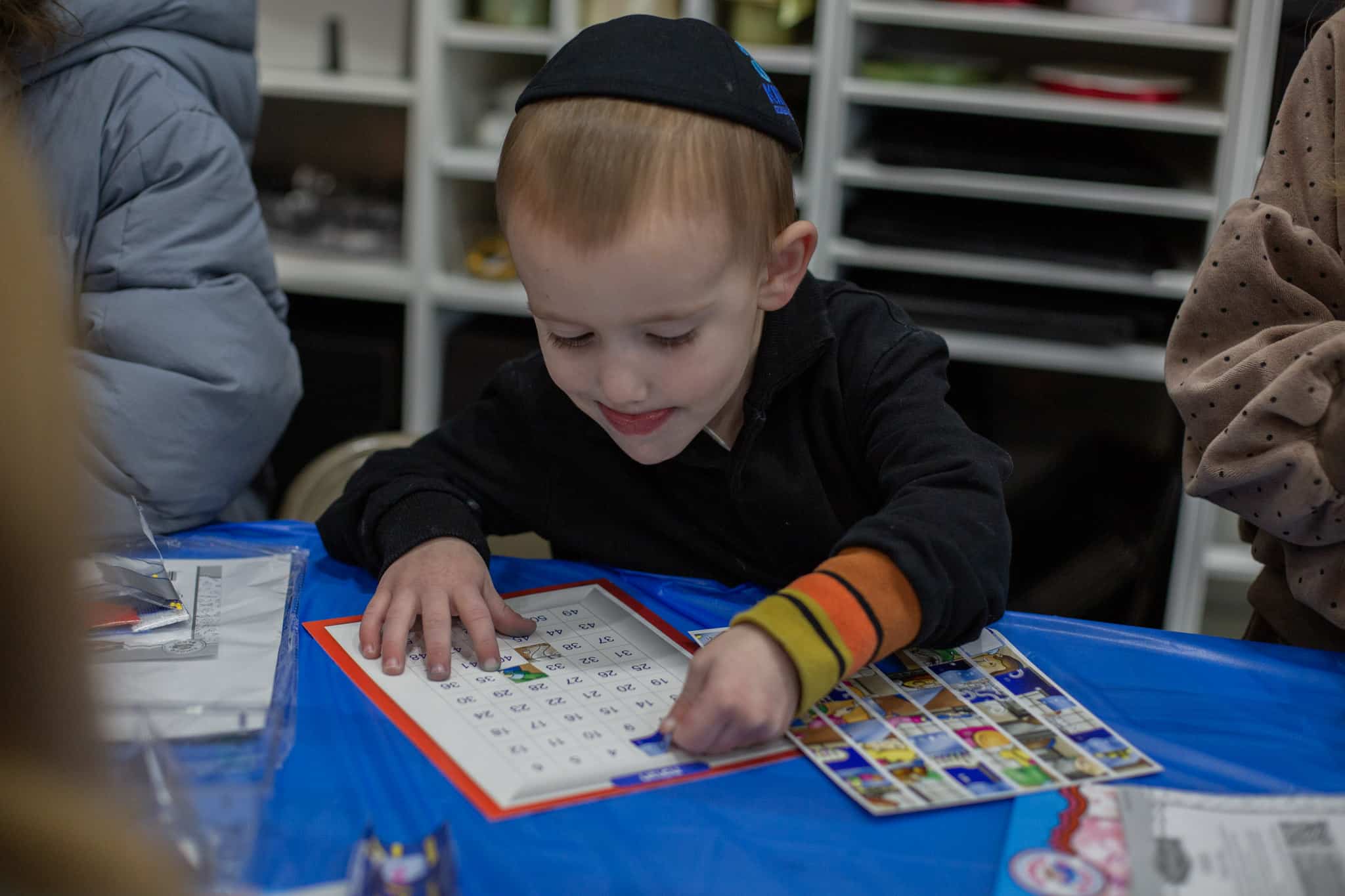
A young child places stickers corresponding to numbers that will make a picture on a board at Curated Gig Harbor. Photo by Carolyn Bick. © Carolyn Bick
History of Chanukah
A menorah — also known as a hanukkiah — is the nine-branched candelabra Jews light over the course of eight nights for their winter festival, called Chanukah (also spelled “Hanukkah”). Eight of the candles are lit over the course of eight nights using the ninth one, called the shamash, or the helper candle.
Lighting the menorah commemorates the successful Jewish rebellion against the Seleucid Empire, which, led by Antiochus IV, had conquered Judea and persecuted the Jews. Imperial Greek forces slaughtered Jews, sold them into slavery, and erected shrines to their own gods in Jewish places of worship. That included the Jews’ main temple in Jerusalem, the Second Temple.
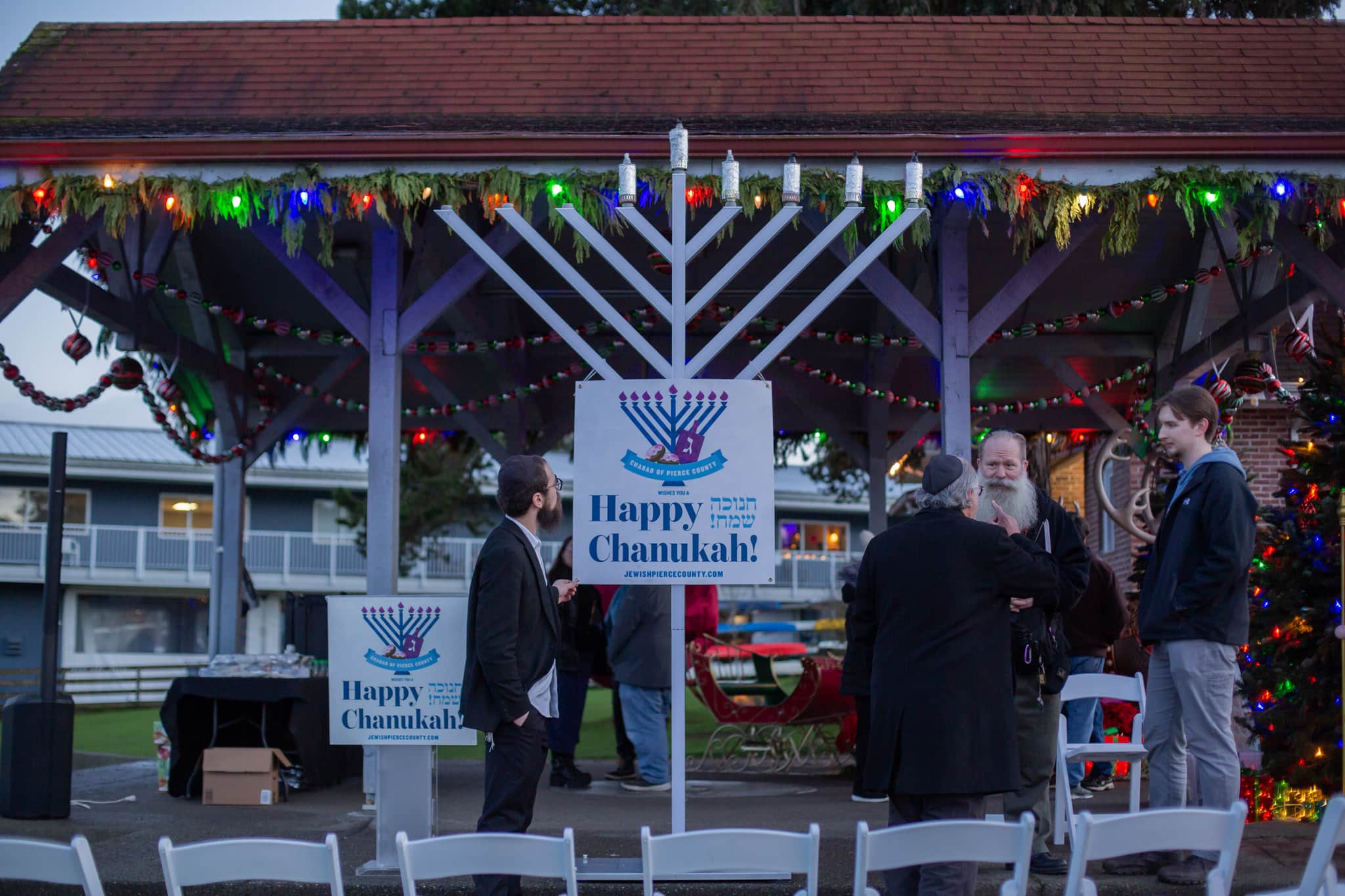
Mayer Kesselman, left, slightly adjusts the “Happy Chanukah!” sign on the large menorah at Skansie Brothers Park, as he, Marc Avni, Lloyd Cupiccia, and Levi Schneider (center left to right) wait for the lighting to start. Photo by Carolyn Bick. © Carolyn Bick
Chanukah specifically commemorates when Jewish rebel forces called the Maccabees reclaimed and rededicated the Second Temple in Jerusalem after regaining control of the city.
Historically, the length of Chanukah has to do with the length of a major Jewish holiday, the autumn harvest festival of Sukkot, which had just passed. Because imperial forces had barred the Jews from celebrating any of their holidays, or openly practicing their faith, the Maccabees opted to celebrate Sukkot after the rededication of the temple. Jewish historian Josephus Flavius later gave the holiday its now well-known moniker, the “Festival of Lights,” in his account describing the Maccabean rebellion and Jerusalem’s reclamation.
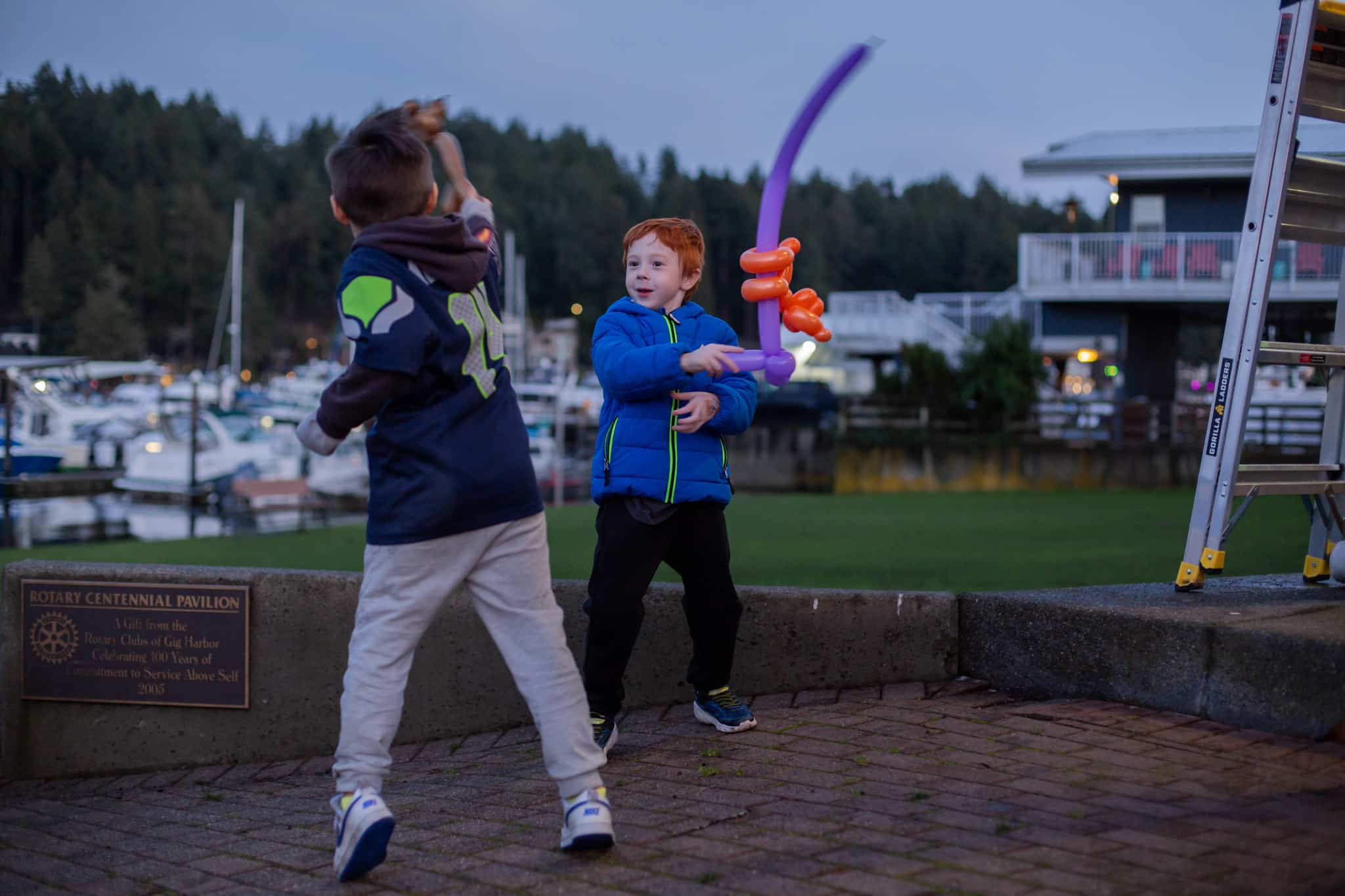
Two young boys play with inflatable balloon swords, before the lighting of the menorah at Skansie Brothers Park. Photo by Carolyn Bick. © Carolyn Bick
Sacred oil
Later rabbinic tradition and the Chanukah story many Jewish children know ascribes the festival’s length to the amount of time the temple’s sacred lamp oil lasted.
When the Jews took back the temple from imperial forces, the story goes, they could only find enough unspoiled oil to light the temple for one night. Instead, the oil lasted eight nights. This is why it is said that Chanukah is celebrated for eight nights, and why Jews eat foods fried in oil. The most well-known of these foods is the latke, or potato pancake, followed by fried, jelly-filled doughnuts called sufganyot.
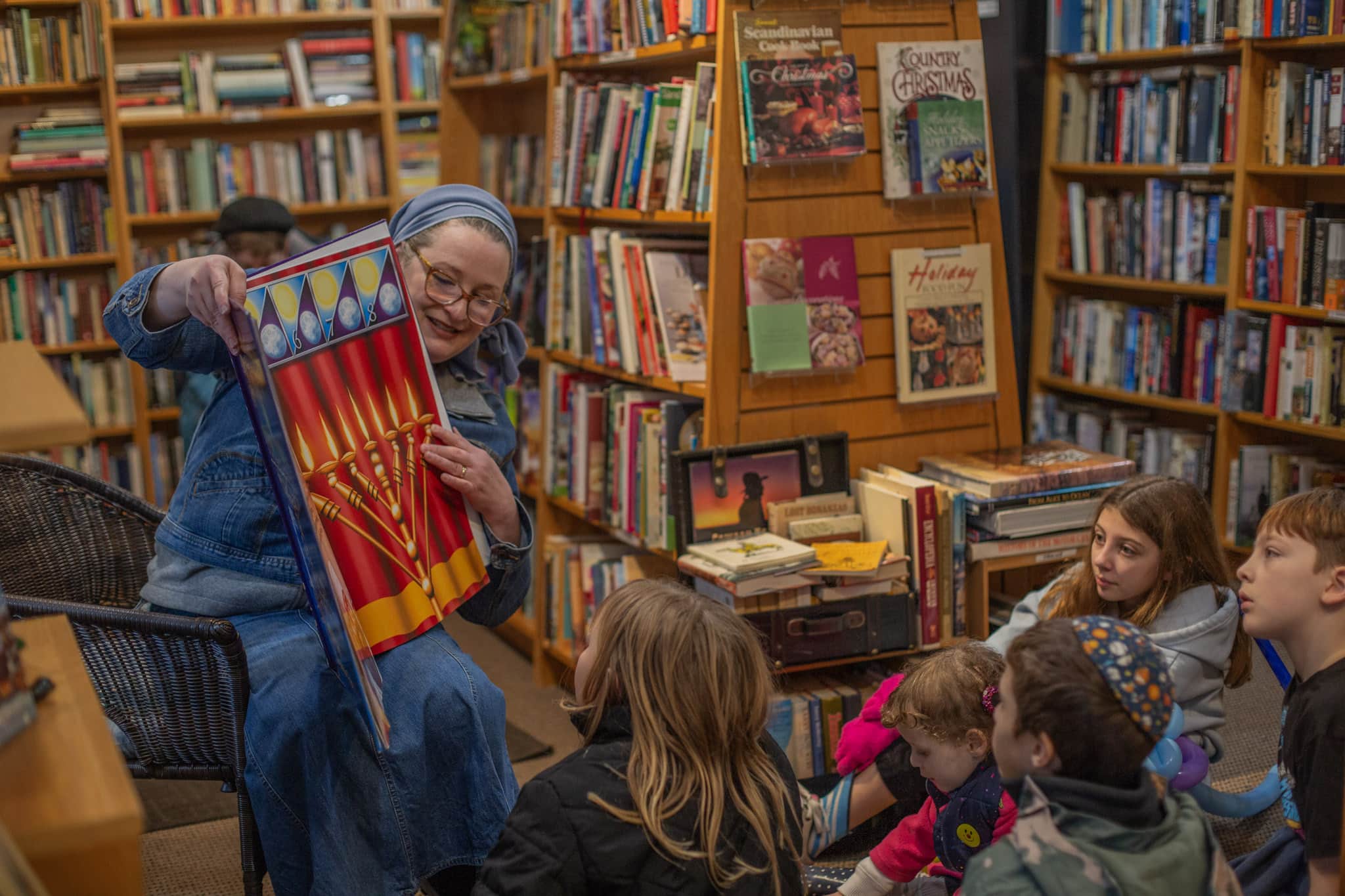
Sondra Schneider co-reads the Chanukah Big Book with a group of children at No Dearth of Books, one of the Gig Harbor stores participating in this year’s Chanukah Village. Photo by Carolyn Bick. © Carolyn Bick
Kesselman told listeners the brief story of a Jewish saying. In the days before electric street lamps, there were gas street lamps, and street lamp lighters whose job it was to light those lamps every night.
This is what everyone is and should work to be, Kesselman said.
“We each carry in our pocket a long pole of light to kindle these lamps, wherever they may be, so that there is no place where there will be darkness. During the holiday of Chanukah, we kindle the flame each night,” Kesselman said. “We sit there and we stare at the flames as they flicker even higher. What is it about these flames that draws us in? We can sit and gaze at these flames for hours, because we are gazing at ourselves, recognizing that we too are a shining flame, doing our part every single day to kindle the flames of other people around us.”
But this is not just Jews’ job or responsibility, Kesselman said. It falls to everyone. He encouraged everyone, regardless of faith, to share joy and warmth with each other.
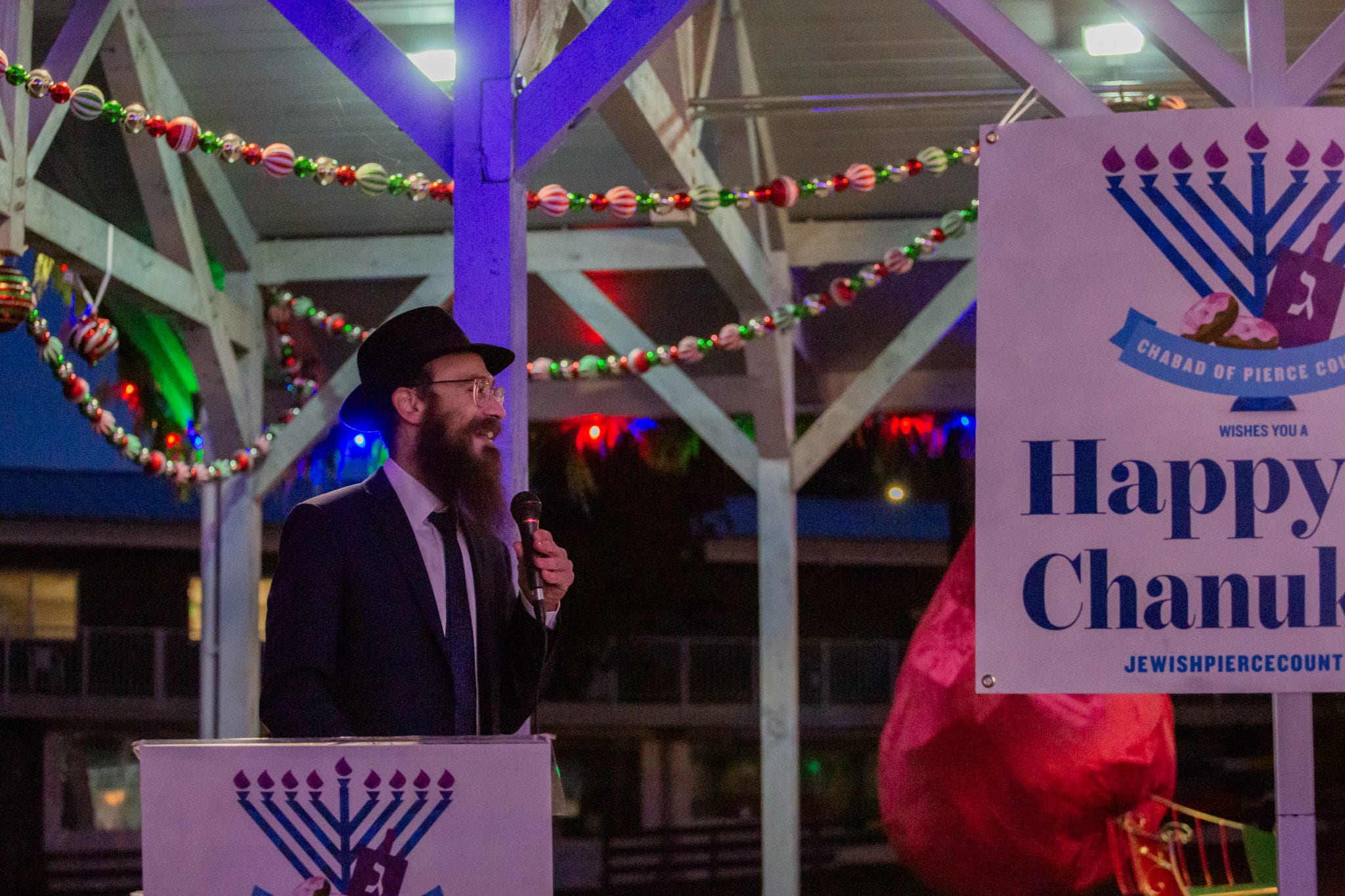
Rabbi Mendel Kesselman gives a short speech before the menorah lighting. Photo by Carolyn Bick. © Carolyn Bick
A new tradition
Gig Harbor Mayor Mary Barber, who had joined the celebration that night to show support, also gave a few brief remarks, before inviting everyone to enjoy what the evening had to offer.
“We are so glad to be having this public menorah lighting for the second year in a row,” Barber said. “We hope to make it a tradition every year. As we are a welcoming community, we want to wish everyone here tonight a happy Chanukah.”
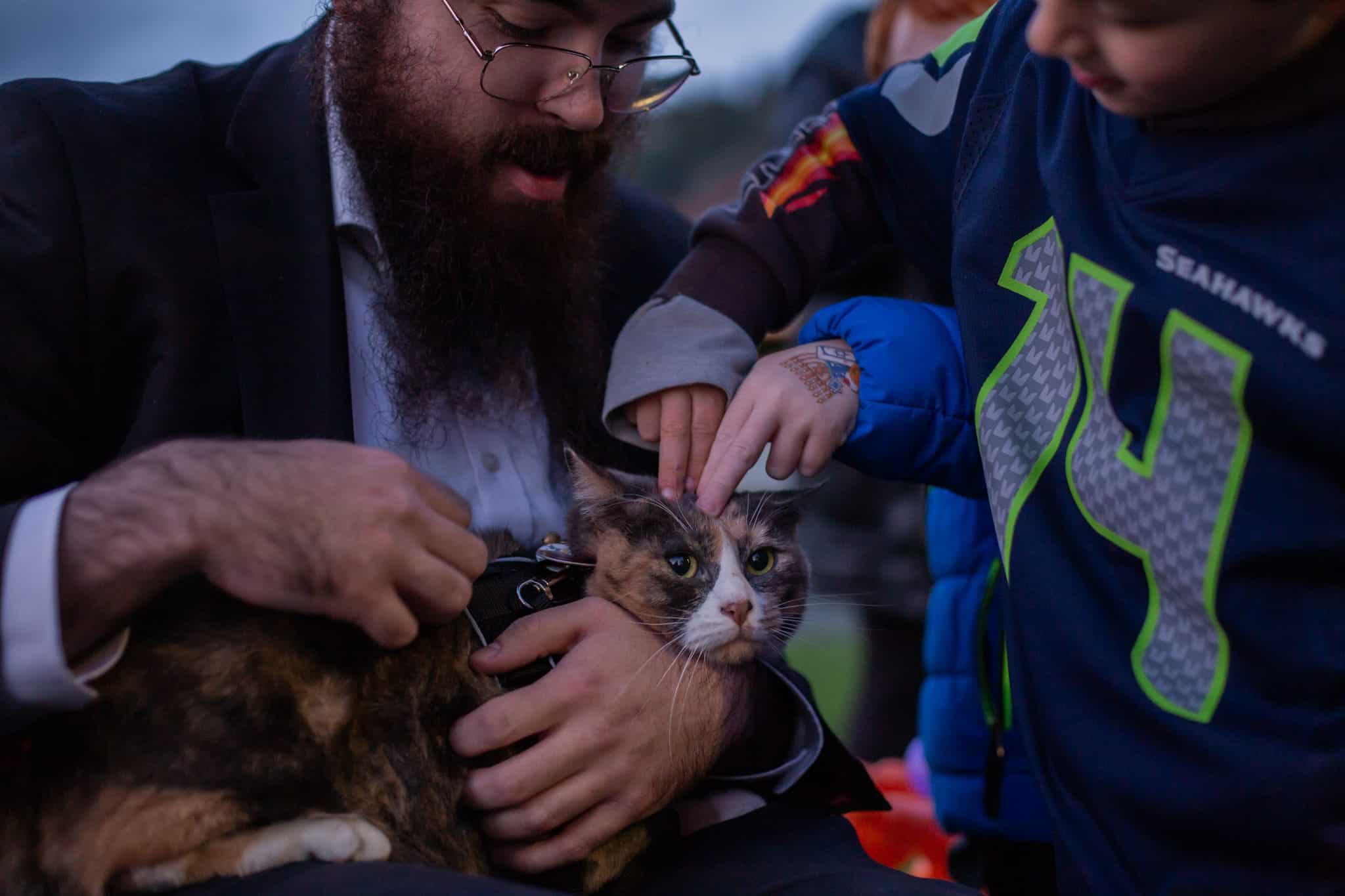
Children pet Lofah the cat, as her owner, Daniel Diliscia, left, holds her. Diliscia said she is named “Lofah,” because “she’s like a loaf-a bread.” Photo by Carolyn Bick. © Carolyn Bick


